Hemophagocytic Lymphohistiocytosis (HLH) Across Pediatric Specialties: Spotlight on Immune Effector Cell HLH Like Syndrome
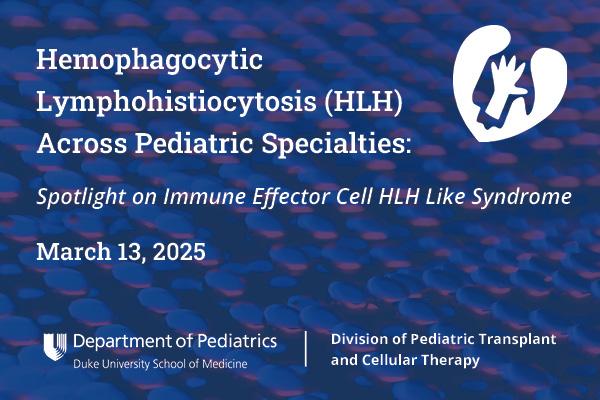
Quick Links:
About the Conference | Agenda | The Speakers | Registration | Travel Information | Questions | About Duke PTCT
About the Conference
Join us for:
Hemophagocytic Lymphohistiocytosis (HLH) Across Pediatric Specialties: Spotlight on Immune Effector Cell HLH Like Syndrome
Date: Thursday, 3/13/25
Conference Location:
The Karsh Alumni and Visitors Center
2080 Duke University Road
Durham, NC 27708
We invite you as we convene experts from Duke Cancer Institute and major academic societies including Pediatric Acute Lung Injury and Sepsis Investigators (PALISI) Network-HCT Cancer Immunotherapy Subgroup, American Society of Transplant and Cellular Therapy (ASTCT), European Blood and Marrow Transplant (EBMT) Group and ICU Oncology Kids in Europe Research Group (POKER).
About the conference: Cytokine release syndrome (CRS) and immune effector cell-associated neurotoxicity syndrome (ICANS), are well-recognized toxicities associated with immune effector cell therapies, and in particular, chimeric antigen receptor (CAR) T cell therapy. There is increasing recognition that hemophagocytic lymphohistiocytosis (HLH)-like toxicities following CAR T cell infusion are occurring broadly across patient populations and CAR T cell constructs. At this symposia, we convene experts across pediatric and adult specialties to discuss and guide future research, advocacy and clinical priorities related to IEC-HLH Like Syndrome.
At the conference, we will:
- discuss our current understanding of HLH, hyper-inflammatory and HLH Like Syndromes
- review current state and future landscape for immune effector cell therapies
- discuss recent ASTCT criteria for diagnosis and management IEC-HLH Like Syndrome criteria
- explore other hyper-inflammatory disorders as it may inform future IEC-HLH Like Syndrome management strategies
Please note: The Pediatric Acute Lung Injury and Sepsis Investigators (PALISI) Network HCT-Cancer Immunotherapy Subgroup is dedicated to improving the health and survival of children who require critical care during and following hematopoietic cell transplantation and/or cancer immunotherapies, through collaborative clinical and translational research.
The Spring 2025 Subgroup Meeting will occur independently of the main PALISI Meeting at Duke’s Karsh Almuni Center on March 12, 2025. Final Agenda to be released in March 2025. The subgroup meeting is open to all interested registrants. Registrants for Hemophagocytic Lymphohistiocytosis (HLH) Across Pediatric Specialties: Spotlight on Immune Effector Cell HLH Like Syndrome are encouraged to also register for the PALISI HCT-Cancer Immunotherapy Meeting on March 12th, 2025, but this is not required.
Agenda
Spotlight on Immune Effector Cell HLH Like Syndrome agenda includes:
| Time: EST | Topic | Speaker |
|---|---|---|
| 9:00AM-9:15AM | Welcome and Introductions | Dr. Kris Mahadeo Division Chief, Pediatric Transplant and Cellular Therapy Duke University |
| 9:15AM-10:00AM | Keynote Address: IEC HLH Like Syndrome |
Dr. Nirali Shah Head, Hematologic Malignancies Section Pediatric Oncology Branch National Cancer Institute |
| 10:00AM-10:30AM | Overview of Primary and Secondary HLH | Dr. Jacob Bleesing Co-Director, Diagnostic Immunology Laboratories Associate Director, Immunodeficiency and Histiocytosis Program, Professor of Pediatrics, University of Cincinnati |
| 10:30AM-11:00AM | IEC Therapies: Current and Future Landscape | Dr. Matthew Fringault Clinical Director, Cellular Therapy Service Assistant Professor of Medicine, Harvard Medical School |
| 11:00AM-11:15AM | Break | |
| 11:15-11:45AM | Updates on CRS and ICANS pathophysiology, diagnosis and management | Dr. Krina Patel Associate Professor, Department of Lymphoma/Myeloma, Division of Cancer Medicine, The University of Texas MD Anderson Cancer Center |
| 11:45AM -12:15PM | Bridging the Gaps between HLH and IEC HLHLS | Dr. Joseph Rocco Assistant Clinical Investigator Laboratory of Immunoregulation National Institute of Allergy and Infectious Diseases |
| 12:15PM-1:15PM | Lunch | |
| 1:15PM-2:00PM |
Hyper-inflammation and HLH Across Specialties Session Chair: |
Dr. Veronika Polishchuk Dr. Neena Kapoor Dr. Lee Pui Dr. Jeffrey Dvergesten Dr. Heather Van Mater |
| 2:00PM-2:30 PM | HLH Like Syndromes and the Liver | Dr. Dana Goldner Assistant Professor, Assistant Professor, Pediatric Hepatology New York University |
| 2:30PM -2:45 PM | Break | |
| 2:45PM-3:15PM |
Inter-disciplinary Challenges in Access to Care of HLH and HLH Like Syndromes Session Chair: |
Sarah Featherston, LaTarsha Spencer Dr. Shaikha AlQahtani |
| 3:15-4:00PM |
Challenging Cases Session Chair: |
Dr. Joseph Angelo Dr. Matteo Di Nardo Dr. Roelie Wösten-van Asperen Dr. Fabiana Cacace |
| 4:00PM-4:30 PM | Break Out Sessions: Future Diagnostic, Treatment and Research Considerations in IEC HLH Like Syndrome |
Diagnosis: Dr. Nirali Shah Treatment: Dr. Melissa Hines Research: Dr. Francesco Paolo Tambaro |
| 4:30PM-5:30PM | Facilitated Discussion/Q/A |
Dr. Carmem Bonfim Dr. Kris Mahadeo |
| 5:30-6:30PM | Closing Reception/Networking |
Dr. Kris Mahadeo
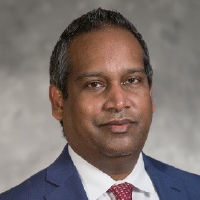
Dr. Kris Mahadeo
Division Chief, Pediatric Transplant and Cellular Therapy
Duke University
Dr. Mahadeo is a dedicated Pediatric Transplant and Cellular Therapy (PTCT) specialist, currently serving as the Division Chief of PTCT at Duke University. With a strong commitment to lifelong learning, Dr. Mahadeo is inspired by the continuous advancements in the field of pediatric transplant and cellular therapy. Following the completion of their PTCT fellowship at Duke, they have built a career focused on expanding the indications for PTCT and improving associated outcomes.
Dr. Mahadeo has a particular interest in the mitigation of endotheliopathies and leads global efforts aimed at harmonizing the management of therapy-related toxicities. As a leader in the field, Dr. Mahadeo ensures that patients receive state-of-the-art care, with access to cutting-edge research protocols that are transforming pediatric PTCT. Additionally, he is deeply committed to training the next generation of physicians, fostering global partnerships to improve patient care worldwide.
Dr. Nirali Shah Head
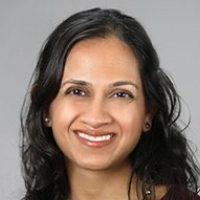
Dr. Nirali Shah Head
Hematologic Malignancies Section
Pediatric Oncology Branch
National Cancer Institute
Dr. Shah is an American physician-scientist and pediatric hematologist-oncologist, currently serving as the head of the Hematologic Malignancies Section in the Pediatric Oncology Branch at the National Cancer Institute (NCI). She specializes in translating immunotherapeutic approaches to treat high-risk hematologic malignancies in children, adolescents, and young adults. During her undergraduate years at St. Jude Children’s Research, she shadowed a pediatric hematologist-oncologist and became captivated by the complexity of leukemia and its disruption of hematopoiesis. Dr. Shah earned a B.S. in Secondary Education in Chemistry from the University of Illinois at Chicago in 2000, followed by an M.D. from the University of Illinois College of Medicine in 2004. She completed a dual residency program in internal medicine and pediatrics at the Harvard Combined Residency Program, training at Boston Children's Hospital and Massachusetts General Hospital, where she also served as Chief Resident. Dr. Shah then pursued a Pediatric Hematology and Oncology Fellowship at the National Cancer Institute (NCI) in collaboration with Johns Hopkins University, and was appointed as an Associate Research Physician in the NCI's Pediatric Oncology Branch.
In 2012, Dr. Shah earned a Master of Health Science in Clinical Research through a joint NIH-Duke University School of Medicine program and completed the American Society for Blood and Marrow Transplantation Clinical Research Training Course. Throughout her career, Dr. Shah has been dedicated to advancing treatments for pediatric hematologic malignancies and training the next generation of clinicians and researchers in the field.
Dr. Jacob Bleesing
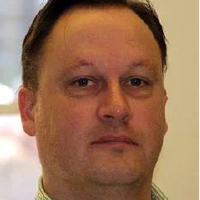
Dr. Jacob Bleesing
Co-Director, Diagnostic Immunology Laboratories
Associate Director, Immunodeficiency and Histoiocytosis Program
Professor of Pediatrics, University of Cincinnati
Dr. Bleesing is a Professor of Pediatrics at University of Cincinnati, where he co-leads the Immunodeficiency and Histoiocytosis Program and Diagnostic Immunology Laboratories. He completed his fellowship in Allergy Immunology at Duke University and a Clinical Laboratory Immunology Fellowship at the National Institutes of Health.
Dr. Bleesing is a clinical investigator with a focus on primary immunodeficiency disorders (with emphasis on disorders of immuno dysregulation and B-cell disorders); immuno-reconstitution following blood and marrow transplantation; diagnostic immunology (with emphasis on flow cytometry).
Dr. Matthew Fringault
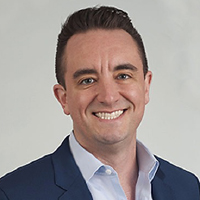
Dr. Matthew Fringault
Clinical Director, Cellular Therapy Service
Assistant Professor of Medicine, Harvard Medical School
Dr. Matthew Fringault is an oncologist and the Clinical Director of the Cellular Immunotherapy Program at Massachusetts General Hospital, as well as an Assistant Professor of Medicine at Harvard Medical School. His primary research focus is on translating emerging cellular therapy products into clinical practice, while also gaining a deeper understanding of the immunologic mechanisms that underpin efficacy, toxicity, and resistance. Dr. Fringault’s work has encompassed the translational biology and signaling of cellular therapies, including his contributions to the development of next-generation CAR-T cell constructs and their first-in-human studies at the University of Pennsylvania. He is also dedicated to exploring the role of cellular therapies in challenging patient populations, such as those with active central nervous system (CNS) disease, and investigating mechanisms of treatment-limiting toxicities, resistance, and new adverse events.
His ultimate goal is to expand the applicability of immune effector cell therapies to a broader range of patient populations and to improve overall patient outcomes.
Dr. Krina Patel
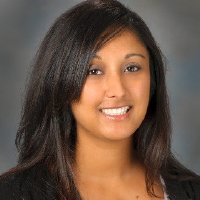
Dr. Krina Patel
Multiple Myeloma Section Chief, Associate Professor
Division of Cancer Medicine, The University of Texas MD Anderson Cancer Center
Dr. Patel is a specialist in Plasma Cell Dyscrasias at MD Anderson Cancer Center, where she runs an active clinic treating patients with multiple myeloma, AL amyloidosis, Waldenström's macroglobulinemia, POEMS syndrome, and plasmablastic myeloma/lymphoma. Her clinical expertise is complemented by her robust research in the development of innovative therapies for plasma cell disorders.
Dr. Patel's research primarily focuses on improving treatments and outcomes for patients with multiple myeloma and other plasma cell dyscrasias. Dr. Patel is actively involved in phase I/II and phase III clinical trials exploring the use of CAR T cells, monoclonal antibodies, and other immunotherapies and targeted therapies for both newly diagnosed and relapsed/refractory diseases.
Dr. Joseph Rocco
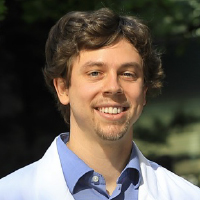
Dr. Joseph Rocco
Assistant Clinical Investigator Laboratory of Immunoregulation
National Institute of Allergy and Infectious Diseases
Dr. Joe Rocco, M.D., is an Assistant Clinical Investigator in the HIV Pathogenesis Section of the Division of Intramural Research. His research focuses on hyperinflammatory syndromes, particularly those related to HIV/AIDS and other immune dysregulation conditions. During the COVID-19 pandemic, Dr. Rocco was deeply involved in clinical-translational research examining the pathophysiology and host immune response to SARS-CoV-2, with a special emphasis on individuals with immunocompromising conditions.
Since joining as an Assistant Clinical Investigator, Dr. Rocco has led one of the largest and most comprehensive clinical trials focused on secondary hemophagocytic lymphohistiocytosis (HLH). He is spearheading the HERCULES trial (HLH Evaluation and Research of Clinical, Immunologic, and Transcriptome Study), a groundbreaking initiative aimed at prospectively recruiting, treating, and following individuals with secondary HLH. Dr. Rocco’s long-term goal is to deepen our understanding of secondary HLH, ultimately improving disease characterization and developing better treatments to enhance the lives of individuals suffering from this debilitating condition
Dr. Francesco Paolo Tambaro
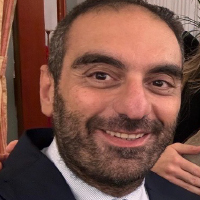
Dr. Francesco Paolo Tambaro
Director of SCT and Cell Therapy Unit
AORN Santobono Pausilipon
Dr. Tambaro is the Chief of SCT and Cell Therapy Unit AORN Santobono Pausilipon, with a distinguished background in Pediatric Stem Cell Transplantation and Cell Therapy, previously serving at the renowned University of Texas MD Anderson Cancer Center. With expertise in Hematopoietic Cells Transplantation and CAR-T, Dr. Tambaro is dedicated to advancing the treatment of various pediatric hematological malignant and non-malignant conditions.
Dr. Tambaro continues to lead innovative efforts in improving outcomes for patients undergoing stem cell transplantation, with a deep commitment to providing cutting-edge care and contributing to groundbreaking research in the field.
Dr. Veronika Polishchuk
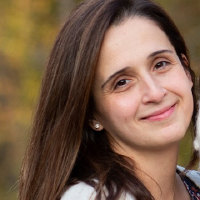
Dr. Veronika Polishchuk
Assistant Professor of Pediatrics (Hematology, Oncology, and Stem Cell Transplantation)
Northwestern University Feinberg School of Medicine
Dr. Polishchuk is an attending physician specializing in Hematology, Oncology, Neuro-Oncology, and Stem Cell Transplantation, as well as an Assistant Professor of Pediatrics at Northwestern University Feinberg School of Medicine.
She completed her pediatric residency at Children's Hospital of Montefiore in 2013, followed by a fellowship in Pediatric Hematology-Oncology at the same institution in 2016. Dr. Polishchuk then advanced her expertise with a Pediatric Bone Marrow Transplant fellowship at Duke Children's Hospital in 2017. She is board certified in General Pediatrics and Pediatric Hematology-Oncology. She is an active member of the American Society for Apheresis (ASFA), the American Society for Transplantation and Cellular Therapy (ASTCT), and the American Society of Pediatric Hematology/Oncology (ASPHO).
Her research focuses on immunotherapy resistance in pediatric leukemia, the safety of peritoneal and pleural drains in stem cell transplant recipients, and acute kidney injury in pediatric hematopoietic stem cell transplantation. Some of her recent publications include studies on the mechanisms of immunotherapy resistance in leukemia and clinical outcomes in stem cell transplant patients. Dr. Polishchuk is committed to advancing the treatment and care of children with complex hematological and oncological conditions.
Dr. Neena Kapoor
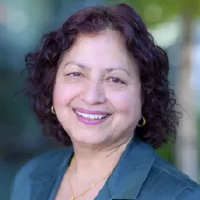
Dr. Neena Kapoor
Director of Blood and Marrow Transplant Laboratory, Children's Hospital Los Angeles
Dr. Kapoor is a physician in Hematology, Oncology, and Director of the Blood and Marrow Transplant Laboratory in Children's Hospital Los Angeles. She completed her medical training at Himachal Pradesh Medical College, followed by an internship and residency at Rhode Island Hospital, Brown University, and a fellowship in Immunology at Memorial Sloan Kettering Cancer Center and Cornell University. Her clinical interests include immunological reconstitution post-transplant, infection management in immunosuppressed patients, transplantation for genetic and autoimmune diseases, and reducing transplant-related toxicity.
Dr. Lee Pui
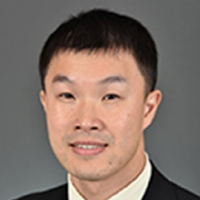
Dr. Lee Pui
Assistant Professor of Pediatrics, Harvard Medical School, Attending Physician in Rheumatology, Boston Children’s Hospital
Dr. Lee is an assistant professor in Pediatrics at Harvard Medical School and attending physician in Rheumatology at Boston Children’s Hospital. He completed the MD-PhD program at the University of Florida and subsequently finished residency and fellowship training at Boston Children's Hospital. His research interests are in autoinflammatory diseases and myeloid cell biology. His lab studies the role of immunometabolism in the development and differentiation of monocytes, a type of white blood cells that incites inflammation, with the goal of identifying treatment targets for inflammatory diseases. In addition, Dr. Lee is interested in the mechanism of immune activation in autoinflammatory diseases. He has ongoing projects focused on macrophage activation syndrome and a rare disease called deficiency of adenosine deaminase 2 (DADA2).
Dr. Jeffrey Dvergesten
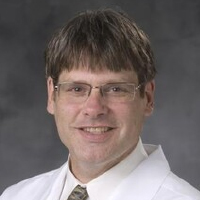
Dr. Jeffrey Dvergesten
Pediatric Rheumatologist, Associate Professor of Pediatrics, Duke University
Dr. Dvergesten is a pediatric rheumatologist and associate professor of Pediatrics at Duke University. He completed his Pediatric Rheumatology Fellowship at the University of Pittsburgh and his Pediatric Critical Care Medicine Fellowship at the University of Minnesota, where he also attended his Pediatric Residency and Medicine/Pediatrics Internship. With his comprehensive training and expertise, he is recognized for his contributions to pediatric rheumatology and critical care, particularly in complex and autoimmune pediatric conditions.
Dr. Heather Van Mater
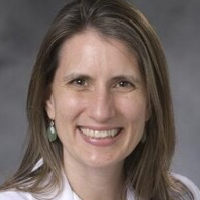
Dr. Heather Van Mater
Pediatric Rheumatologist, Associate Professor of Pediatrics, Chief of Division of Rheumatology, Duke University
Dr. Van Mater is an associate professor of Pediatrics and the chief of the division of Rheumatology at Duke University. She completed her Fellowship in Pediatric Health Services Research and Pediatric Rheumatology Fellowship at the University of Michigan, where she also served as Pediatric Chief Resident. Her distinguished career combines expertise in pediatric rheumatology with a focus on health services research, contributing significantly to the field of pediatric care.
Dr. Dana Goldner
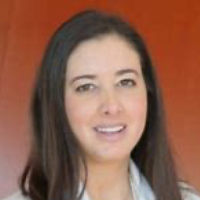
Dr. Dana Goldner
Assistant Professor, Pediatric Hepatology
New York University
Dr. Dana Goldner is an Assistant Professor of Pediatrics in Pediatric Hepatology at Columbia University Medical Center and an Assistant Attending at New York-Presbyterian Morgan Stanley Children’s Hospital. Prior to her faculty appointment, Dr. Goldner earned her Bachelor of Science degree in Molecular Biology from the Massachusetts Institute of Technology (MIT).
She completed her medical education at Weill Cornell Medical College/New York-Presbyterian and subsequently completed her Pediatric Internship and Residency at Massachusetts General Hospital/Harvard Medical School in Boston. She then went on to pursue fellowships in both Pediatric Gastroenterology, Hepatology and Nutrition and Pediatric Transplant Hepatology at New York Presbyterian/Columbia University Medical Center. Dr. Goldner is a triple board certified in Pediatrics, Pediatric Gastroenterology, and Pediatric Transplant Hepatology. Her clinical and research interests include acute liver failure, metabolic and genetic liver disease, biliary atresia, Alpha-1 antitrypsin deficiency, liver masses, and transplant hepatology.
Jacob Keller
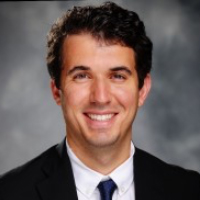
Jacob Keller
Administrative Director, Hematologic Malignancies and Cellular Therapy, Duke Blood Cancer Center, Duke University
Jacob Keller currently serves as the administrative director for Hematologic Malignancies and Cellular Therapy at the Duke Blood Cancer Center at Duke University Hospital. He was an administrative fellow at Duke University Hospital from 2020 to 2022. From 2017 to 2020, he worked as the Programs Administrator for the Ronald Reagan Institute for Emergency Medicine at The GW Medical Faculty Associates. His career reflects a strong focus on healthcare administration, particularly in oncology and emergency medicine.
Sarah Featherston
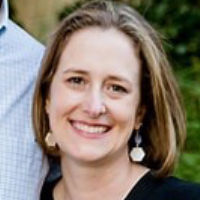
Sarah Featherston, RN
CART Coordinator, The University of Texas MD Anderson Cancer Center
Sarah Featherston is the Lead Pediatric Nurse Coordinator for Pediatric Stem Cell Transplant and Cellular Therapy at MD Anderson Cancer Center. With over 14 years of experience in healthcare, she specializes in guiding and educating complex pediatric and young adult oncology patients as they transition to stem cell transplant care. Prior to this role, Featherston worked as a clinical nurse in the pediatric SCT-CT inpatient unit. Her background also includes a bachelor's degree in molecular and cell biology from Texas A&M University, which has provided her with a deep and unique understanding of oncology and its cellular processes.
LaTarsha Spencer

LaTarsha Spencer
Research Program Lead, Pediatric Transplant and Cellular Therapy
Duke University
LaTarsha Spencer is a seasoned clinical research professional with a specialization in Pediatric Oncology (Phase I-III), Pediatric Stem Cell Transplant, and Cellular Therapy. With extensive experience in clinical data management, study coordination, and trial monitoring, Spencer has contributed to advancing pediatric oncology care through meticulous oversight of clinical research processes.
Dr. Shaikha AlQahtani
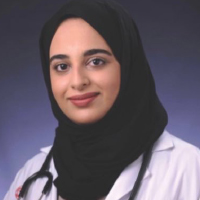
Dr. Shaikha AlQahtani
Fellow, Pediatric Transplant and Cellular Therapy
Duke University
Dr. AlQahtani is currently a Pediatric Transplant and Cellular Therapy (PTCT) Fellow at Duke University. Prior to this, she served as the Chief Pediatric Hematology/Oncology Fellow at MD Anderson Cancer Center, where she gained extensive experience in pediatric oncology and stem cell transplant. Dr. AlQahtani completed her pediatric residency at Virginia Commonwealth University in 2021. She graduated with academic distinction from Weill Cornell Medicine-Qatar in 2018. She is interested in medical Education and Research. With a strong foundation in both clinical care and research, she is committed to advancing the field of pediatric oncology and stem cell transplant therapies.
Dr. Melissa Hines
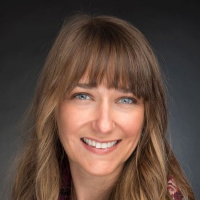
Dr. Melissa Hines
Director, Histiocytosis and Immune Dysregulation Treatment (HIT) Team
St. Jude Children’s Research Hospital
Dr. Hines is an Associate Member of the St. Jude Faculty and serves as the Director of HIT. She completed her Pediatric Critical Care Medicine Fellowship at North Carolina Children’s Hospital, University of North Carolina Hospitals, Chapel Hill. Dr. Hines’ research focuses on Hemophagocytic Lymphohistiocytosis (HLH), with an emphasis on exploring novel therapies and understanding immune system dysregulation in pediatric hematology/oncology patients during critical illness. Her work encompasses hyperinflammation, thrombotic microangiopathy, and the use of cytokine inhibition and biologic therapies in pediatric critical care. She is also dedicated to advancing knowledge of immune-effector cell associated hemophagocytic syndrome and cytokine release syndrome.
Dr. Joseph Angelo
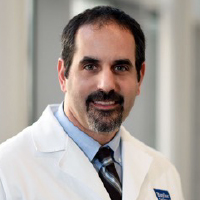
Dr. Joseph Angelo
Medical Director, Ambulatory Renal Services
Assistant Professor, Renal Section, Department of Pediatrics
Baylor College of Medicine
Dr. Angelo is dedicated to delivering patient-centered, evidence-based care to children and adolescents with a broad spectrum of kidney diseases. His clinical and research interests include acute kidney injury, critical care nephrology, and the short- and long-term renal effects of cancer and bone marrow transplants. Dr. Angelo is also an active member of the multidisciplinary team at the Texas Children’s Fetal Center, where he contributes to clinical care, research, and the development of protocols for children with congenital kidney and urinary tract abnormalities, including prenatal consultations. His expertise encompasses intensive care nephrology, acute kidney injury, and congenital anomalies of the kidney and urinary tract.
Dr. Matteo Di Nardo
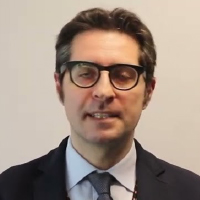
Dr. Matteo Di Nardo
Secretary of the European Society of Pediatric and Neonatal Intensive Care
EuroELSO Scientific Committee
Pediatric Intensive Care Unit, Children's Hospital Bambino Gesù
Dr. Matteo Di Nardo graduated in General Medicine and Surgery in 2001 and completed his specialization in Anesthesiology and Intensive Care in 2006 at the Catholic University of the Sacred Heart. He began his career in the Adult Cardiac Anesthesia and Intensive Care Unit at the European Hospital in Rome, where he worked for a year. Following this, Dr. Di Nardo joined the Pediatric Intensive Care Unit at Bambino Gesù Children’s Hospital in Rome. Since 2013, he has been leading the Respiratory ECMO program at the hospital. He has also been an active member of the EuroELSO Steering Committee since 2014. His scientific interests focus on the prevention of ventilator-induced lung injury and the use of extracorporeal life support in pediatric patients.
Dr. Roelie Wösten-van Asperen
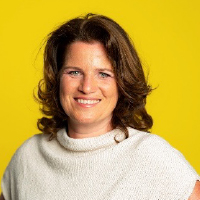
Dr. Roelie Wösten-van Asperen
Pediatric Intensivist, Wilhelmina Children’s Hospital, Utrecht.
Chair, PICU Oncology Kids in Europe Research group (POKER)
Dr. Roelie Wösten-van Asperen is a pediatric intensivist at the Pediatric Intensive Care Unit (PICU) of the Wilhelmina Children’s Hospital in Utrecht. She began her fellowship in pediatric intensive care in 2002 and, after completing it, worked as a consultant pediatric intensivist at Emma Children’s Hospital/Academic Medical Center in Amsterdam. In 2011, she earned her PhD from the University of Amsterdam with her thesis, "The Role of the Renin-Angiotensin System in Acute Lung Injury." Dr. Wösten-van Asperen currently serves as the chair of the PICU Oncology Kids in Europe Research group (POKER), a consortium of 21 PICUs from major pediatric oncology centers across 11 countries with the mission to enhance the understanding and treatment of pediatric oncology patients in the PICU to improve outcomes for children with cancer requiring intensive care.
Dr. Fabiana Cacace
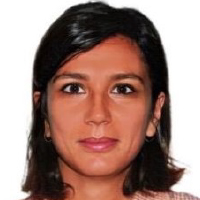
Dr. Fabiana Cacace
SCT Physician, AORN Santobono Pausilipon
Dr. Cacace completed her hematology residency at Federico II University in Naples, where she specialized in the management of bone marrow failure (BMF) syndromes, with a focus on aplastic anemia and paroxysmal nocturnal hemoglobinuria. Afterward, Dr. Cacace transitioned to pediatric hematology at Santobono-Pausilipon Pediatric Hospital in Naples, where she currently works as a pediatric transplant attending at the HCT and Cellular Therapies Unit. She is specialized in both malignant and non-malignant pediatric hematology, with a particular focus on inherited and acquired BMF syndromes. To further advance her expertise, she is pursuing a research scholar program at Duke University in Durham, North Carolina. This program has significantly enriched her knowledge of pediatric hematopoietic cell transplantation, particularly in the treatment of inborn errors of metabolism, hemoglobinopathies, inherited BMF, and acute leukemias.
Dr. Carmem Bonfim
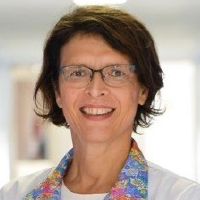
Dr. Carmem Bonfim
Professor, Scientific Director, Pediatric Transplant and Cellular Therapy
Duke University
Dr. Bonfim is a highly experienced pediatric hematologist and transplant specialist currently serving at the Pediatric Blood and Marrow Transplantation Program at Duke University. Prior to this, Dr. Bonfim held key roles at Hospital Pequeno Principe and Hospital de Clínicas at the Federal University of Paraná in Curitiba, Brazil. She earned a PhD with a focus on long-term follow-up after Hematopoietic Stem Cell Transplantation in patients with Fanconi Anemia, a key area of her research. Her clinical focus includes the treatment of pediatric patients with Acute Myeloid Leukemia, Myelodysplastic Syndromes, and Paroxysmal Nocturnal Hemoglobinuria. Additionally, Dr. Bonfim is dedicated to managing both acquired and inherited bone marrow failure syndromes, including Fanconi anemia, Dyskeratosis congenita, Blackfan-Diamond anemia, and Amegakaryocytic purpura. With a commitment to advancing patient care, Dr. Bonfim is focused on delivering innovative therapies and improving outcomes for children with complex hematologic conditions.
Join Us
Course-faculty will attend in-person at Duke University. Registered inter-disciplinary learners will have the option to attend in person or join via webinar. Inter-disciplinary learners from across the globe including pediatric sub-specialty physicians, nurse, advance practice providers, pharmacists and trainees will be expected to attend and obtain continuing education credits for this symposia.
Travel Information
We recommend that you fly into Raleigh Durham (RDU) Airport by the afternoon of March 12th. Please see below for nearby hotels, based on proximity to the event:
JB Duke Hotel
230 Science Drive, Durham NC 27708
JB Duke Hotel in Durham, North Carolina - ReservationCounter.com
Washington Duke Inn and Golf Club
3001 Cameron Boulevard, Durham North Carolina, 27705
Washington Duke Inn & Golf Club in Durham, North Carolina - ReservationCounter.com
Ac Hotel Durham
2800 Erwin Road, Durham, North Carolina, 27705
Hotel in Durham NC near Duke | AC Hotel Durham (marriott.com)